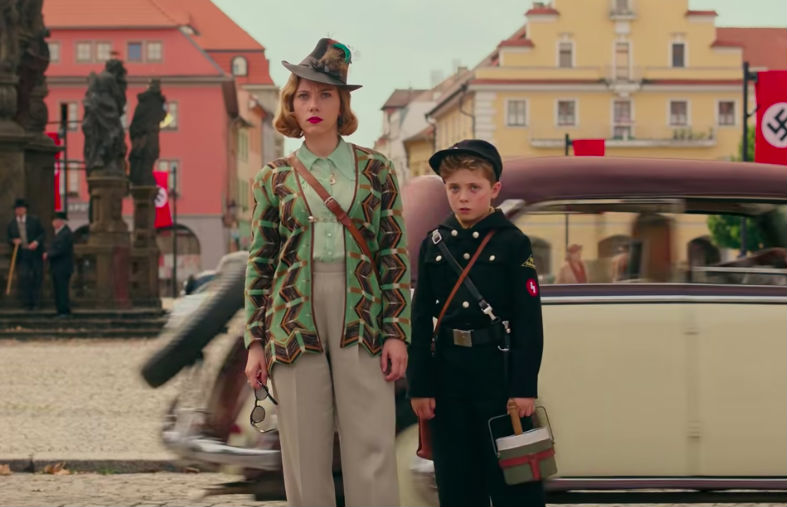‘Jojo Rabbit:’ No Fun in Führer
‘Jojo Rabbit’ delivers in humor but can’t escape thematic confusion
April 6, 2020
March 2018: reeling from the massive success of 2017’s “Thor: Ragnarok,” writer-director Taika Watiti has gone from independent darling to Hollywood mainstay. Deciding to adapt Christine Leunen’s book “Caging Skies,” his new project will go on to make back nearly six times its budget, earn critical acclaim, and garner six Academy Awards nominations, winning one (Best Adapted Screenplay) in the process. The premise? A young German boy with Hitler as his imaginary friend must come to terms with the Jewish girl living in his attic.
Following in the footsteps of Charlie Chaplin and Mel Brooks, “Jojo Rabbit” is tasked with the position of satirizing one of history’s most despicable groups: Nazis. Watiti chooses to portray the film’s Nazi-affiliated authority figures as bumbling idiots who blindly adore the decree of their leader while trying to show off their prowess in tasks like grenade handling––a depiction that’s very promising for great comedic moments. Yet, when your main character is also steadfast in his love of Hitler and hatred of Jews, what do you do?
The film’s depiction of the titular Jojo as a wide-eyed kid with an ultimately clear moral compass living in a wacky environment is what I believe sets off the film’s problems. Like Jojo, the basis of the narrative carries a whimsical and lighthearted attitude, glossing over the supposed threat Nazis hold in turn for a Wes Anderson-esque portrait of Hitler Youth and the playful bliss of World War II–era Germany. When the film attempts to deploy drama in the third act through the relationships Jojo holds with his mother and Elsa, the aforementioned Jewish girl, it does hold a bit of emotional power. However, it still feels relatively undeserved in the midst of comical vignettes, such as Waititi’s appearances as Hitler, and a happy-go-lucky disposition. A change of heart in a supposedly antagonistic character during the climax completely backpedals on the film’s opinion towards figures of Nazi authority, adopting a confusing “some Nazis are just misunderstood” sentiment that tries to tie in with Jojo himself and doesn’t land too well in terms of thematic commentary.


